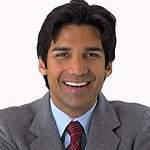Almost sixty-nine percent of adults are overweight and one-third of these are obese. This means that weight loss is a hot topic among men and women. On television, the internet, in newspapers and magazines, practically anywhere you look there is propaganda for miraculous diets and magic weight loss products. These advertisements are convincing. They promise wonderful results from little effort and are accompanied by pictures of beautiful people who have successfully lost weight. The sad truth is that these fad diets and weight loss products do not work in the long run. Here are some reasons why they ultimately fail:
 Fad diets are notorious for eliminating foods that we like. Some cut out all carbohydrates; others every bit of refined sugar. Reality is that we can’t live without our favorite foods for long. It is only a matter of time until we give up the diet and go back to eating as we used to. Any weight we lost returns. We are left overweight and discouraged.
Fad diets are notorious for eliminating foods that we like. Some cut out all carbohydrates; others every bit of refined sugar. Reality is that we can’t live without our favorite foods for long. It is only a matter of time until we give up the diet and go back to eating as we used to. Any weight we lost returns. We are left overweight and discouraged.
- Detox and cleansing pills, laxatives, fasting for certain periods of time and weight loss potions are able to melt away a few pounds, but most of this weight is simply water. These products also rob nutrients from our bodies and prolonged use can cause nutritional imbalances.
- All weight loss diets and products guarantee rapid weight loss. This in itself is harmful. When we lose more than two or three pounds a week, we lose muscle as well as fat. This loss of muscle causes your body to slow down metabolism and it keeps you from being able to exercise properly, which is vital for long-lasting weight loss.
Now that we have established which diets and products do not work, let’s consider how to lose weight quickly, naturally and best of all: permanently! Overeating is the primary culprit for excess pounds. The average adult needs approximately 1,500 – 1,800 calories per day, and if we were to count calories, most of us would find that our daily intake is well over 2,000 calories. Balancing your diet is the first step towards weight loss. Here are some tips for how to do this realistically:
 Find a dependable food pyramid and then make sure that every meal includes the proper number of servings for breads and cereals, dairy products, protein, fruits and vegetables, and even sugars and oils.
Find a dependable food pyramid and then make sure that every meal includes the proper number of servings for breads and cereals, dairy products, protein, fruits and vegetables, and even sugars and oils.
- If you would like to lose weight a little faster, focus on eating fruits, vegetables and lean protein, such as soy products, egg whites, fish, low-fat dairy products, chicken breast and lean meat.
- Don’t eliminate them completely, but decrease refined sugars, starches and salt. These three ingredients cause fluid retention, which adds to our weight. Sugar and starch are also addictive in a certain sense. Those who eat generous amounts of sugar and starch constantly crave more, while cutting back decreases cravings.
- Talk to your doctor about how many calories you need each day, and then begin to count calories. This exercise will help you to understand how many calories are in different foods and where a few calories need to be cut. If you are able to take in five hundred calories less than your body needs each day, you will lose one to two pounds each week.
 Drink 6-8 glasses of water a day. Often what we interpret as hunger is actually thirst. Drinking the recommended amount of water or even more can facilitates eating less.
Drink 6-8 glasses of water a day. Often what we interpret as hunger is actually thirst. Drinking the recommended amount of water or even more can facilitates eating less.
- To be honest, we all have times when we are tempted to trash the diet. At these times, munch on fruits and vegetables. Their fibers satisfy the most ravenous appetites in a healthy way.
- Avoid “grazing”. Nibbling as you cook or every time you walk past the refrigerator adds a surprising number of calories to the diet. If there are specific foods, like chocolate or potato chips, that are especially tempting to you, consider not keeping them on hand but only buy them for special occasions.
- Make meal times important. Don’t skip them and develop the habit of only eating when you are sitting at the table. While you eat, take time to enjoy the taste of your food.
- Last of all, start a food journal. Record what you eat, if you were able to control your portion size or not and how you were feeling emotionally. Stopping to notice these things and seeing them on paper helps us to know ourselves and our habits better. If you do notice emotional problems or eating disorders in yourself, be sure to seek help from a qualified professional.
Eating habits and diet are important for weight loss, but they aren’t the only important things. Regular exercise is also indispensable for losing weight and keeping it off. Thanks to televisions and computers more than half of the population can be considered sedentary. If you fall into this category or if you are undergoing treatment for a chronic condition, speak with your doctor to find how much exercise is safe for you. Then get busy oxygenating your body, strengthening your heart and building lean muscles with these tips:
 The average person requires one hour of moderate exercise every day. Walking, swimming, and biking leisurely burn between 250-500 calories in one hour. These and other cardio exercises burn fat the quickest and they increase blood flow, the circulation of oxygen, metabolism and endurance.
The average person requires one hour of moderate exercise every day. Walking, swimming, and biking leisurely burn between 250-500 calories in one hour. These and other cardio exercises burn fat the quickest and they increase blood flow, the circulation of oxygen, metabolism and endurance.
- Add strength training to your exercise program. Lifting weights several times a week is healthy for men and women of all ages. The intense exercise strengthens bones and the heart, improves balance and can even help control diabetes and arthritis. If you can’t handle intense exercise for a full hour, break it down. Do a few minutes of strength training followed by less intense cardio exercises then do a few more minutes of strength training, etc…
Changing your eating and exercise habits can put you on the road to healthy and sustainable weight loss, but remember to give yourself time to adjust to your new lifestyle. Pushing yourself too hard and too fast will bring setbacks and discouragement. Set short term and long range goals for yourself and then slowly work up to them.











